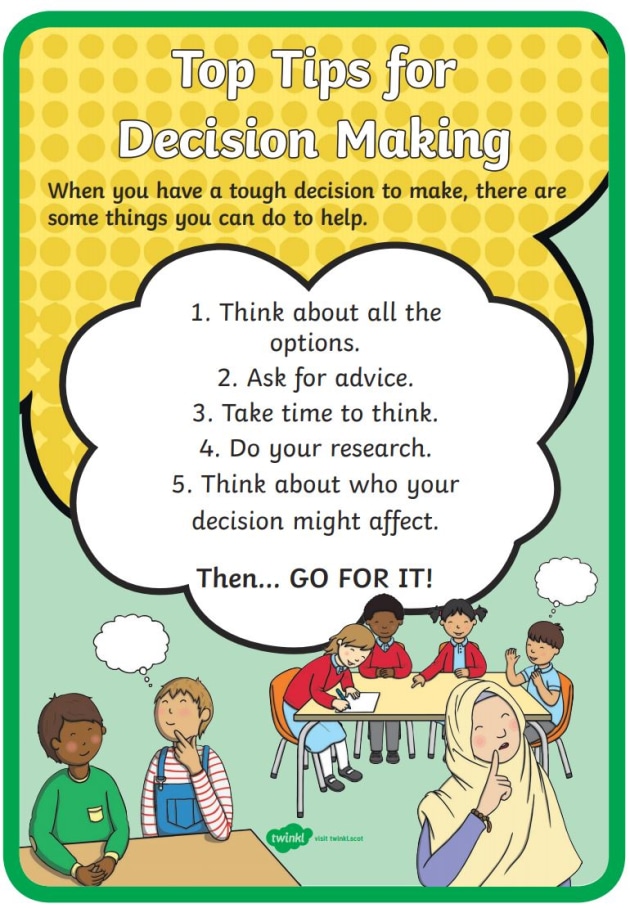In a world brimming with options, the ability to make sound choices is ever critical than before. From the mundane daily choices we encounter—what to have for breakfast—to significant life-altering choices like selecting a career, the process of decision-making shapes our lives in profound ways. However, in spite of its importance, many individuals struggle with making decisions, often succumbing to uncertainty or lamenting their choices later.
Understanding the science behind making decisions can enable you to master the art of smart making decisions. In this piece, we will investigate 10 proven techniques to enhance your decision-making skills, delve into the mental aspects that influences effective choices, and offer applicable tools to enhance clarity and assurance in your decisions. Whether a manager faced with difficult calls or an individual struggling with doubt, these insights will enable you to make improved choices, even in pressure. Come along as we reveal the tactics that can transform your decision-making process and assist you navigate life with greater assurance and clarity of thought.
Strategies for Enhanced Decision-Making
Improving decision-making begins with honing the skill of effective decision-making. One effective technique is to leverage a decision-making framework, such as the advantages and disadvantages chart. This straightforward tool helps illustrate the potential upsides and disadvantages of each alternative, making it simpler to weigh your options. Additionally, applying the SMART framework—Particular, Measurable, Achievable, Relevant, and Time constrained—can provide insight and focus when assessing options, guaranteeing that decisions align with your objectives.
Another essential technique involves analyzing past decisions to learn from them. Looking back on previous choices can illuminate regularities in decision-making, enabling you to recognize what worked and what did not. This practice fosters a learning mindset and promotes you to view failures as chances for improvement rather than setbacks. By developing this introspective habit, you can enhance your ability to make intelligent decisions in the times ahead.

Ultimately, tackling decision fatigue is vital for maintaining mental clarity. Reducing your decisions, whether by structuring your day to handle important decisions when your efficiency is highest or cutting down on the number of daily decisions you make, can prevent overwhelming feelings. Consistent breaks and meditation practices can also help clear your mind and improve concentration, allowing for quicker and more productive decision-making under stress.
Grasping Choice-Making Cognitive Theory
Decision-making is deeply rooted in psychology, shaping how we consider options and reach conclusions. Mental biases play a major role in this process, often biased our perception and causing us to make choices that diverge from rational thought. For example, the confirmation effect causes individuals to lean toward information that strengthens their existing beliefs while disregarding contradictory data. Recognizing these biases can help individuals make more educated and balanced decisions.
Emotional intelligence also substantially impacts decision-making. The skill to identify and manage one’s emotions fosters a sharper assessment of situations, particularly in stressful environments. Decisions made in the throes of emotion can cause regret, whereas a level-headed approach promotes better judgment. Cultivating emotional awareness not only assists in personal decision-making but also improves interactions with peers during group choices.
Moreover, the interplay between intuition and rational thought is a key aspect of decision-making psychology. Although intuition can provide immediate insights based on past experiences, placing complete trust in it can result in errors. Combining gut feelings with detailed analysis provides a comprehensive evaluation of options. This fusion allows individuals to make assured decisions that are both natural and analytically sound, leading to improved outcomes in various areas of life.
Effective Tools for Confident Choices
Making confident decisions often hinges on having the necessary tools at your disposal. https://k12.instructure.com/eportfolios/974445/entries/3526821 is to employ a decision matrix, which allows you to weigh different options against specific criteria that matter significantly to you. By assigning scores to each option based on how well they meet these criteria, you can visualize your choices and make a better decision. This structured approach reduces biases and emotions that might cloud your judgment.
Another important tool is the "10-10-10" rule, where you assess how you will feel about your decision in 10 moments, 10 intervals, and 10 times. This method promotes you to think beyond the immediate consequences, ensuring that your decisions align with your long-term goals and values. By positioning your choices in this way, you can gain clarity and confidence in the paths you choose.
Additionally, engaging in mindfulness can significantly boost your decision-making process. Taking a moment to pause and reflect allows you to empty your mind of distractions and reduce anxiety associated with making tough choices. Techniques such as deep breathing or short meditation can help you connect with your intuition, making it easier to discern what feels right. By incorporating these tools into your decision-making routine, you can approach choices with greater assurance and clarity.
